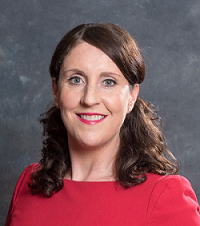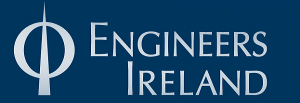-
Courses

Courses
Choosing a course is one of the most important decisions you'll ever make! View our courses and see what our students and lecturers have to say about the courses you are interested in at the links below.
-
University Life

University Life
Each year more than 4,000 choose University of Galway as their University of choice. Find out what life at University of Galway is all about here.
-
About University of Galway

About University of Galway
Since 1845, University of Galway has been sharing the highest quality teaching and research with Ireland and the world. Find out what makes our University so special – from our distinguished history to the latest news and campus developments.
-
Colleges & Schools

Colleges & Schools
University of Galway has earned international recognition as a research-led university with a commitment to top quality teaching across a range of key areas of expertise.
-
Research & Innovation

Research & Innovation
University of Galway’s vibrant research community take on some of the most pressing challenges of our times.
-
Business & Industry

Guiding Breakthrough Research at University of Galway
We explore and facilitate commercial opportunities for the research community at University of Galway, as well as facilitating industry partnership.
-
Alumni & Friends

Alumni & Friends
There are 128,000 University of Galway alumni worldwide. Stay connected to your alumni community! Join our social networks and update your details online.
-
Community Engagement

Community Engagement
At University of Galway, we believe that the best learning takes place when you apply what you learn in a real world context. That's why many of our courses include work placements or community projects.
Our School
Welcome to the School of Engineering

As the Head of the School of Engineering, I am delighted to introduce you to the School of Engineering at the College of Science and Engineering, University of Galway.
The School of Engineering is a dynamic community, underpinned by values of excellence, respect, openness, and sustainability, which shape our culture and drive our commitment to fostering engineers who will shape a brighter future.
Our commitment to excellence drives us to continuously strive for the highest standards in all that we do. Our academic programmes and accomplished academic, technical and professional service staff members provide an excellent education and environment that equips our students with the skills to excel in their careers. Our programs in Civil, Electronic and Computing, Electrical and Electronic, Mechanical, Energy Systems and Biomedical Engineering are designed to empower students with cutting-edge knowledge and practical experience. We embrace interdisciplinary learning and research, enabling students to transcend conventional boundaries. Our School members are research pioneers, advancing knowledge and creating solutions that have a positive impact on society. We consistently contribute ground-breaking solutions to real-world problems.
We are committed to the values of respect and openness, recognising the importance of these values to unlock creativity and discovery, and ensuring that our people can make an impact on the world. Our diverse community celebrates a multitude of perspectives, cultivating an environment of collaboration, innovation, and instilling a global outlook among our students and staff.
Sustainability is a responsibility we embrace wholeheartedly. We are dedicated to equipping our students with the knowledge and awareness to become responsible stewards of our planet. Our curriculum infuses sustainable practices, while our research tackles global challenges. Through education and action, we inspire a sustainable mindset for a better future.
I invite you to delve into our website to explore our comprehensive education and research programs in Civil, Electronic and Computing, Electrical and Electronic, Mechanical, Energy Systems and Biomedical Engineering. Whether you are a prospective student, a researcher, an industry partner, or a curious visitor, I invite you to join us on our journey of innovation and impact.
Professor Laoise McNamara
Head of School of Engineering
College of Science and Engineering
University of Galway
Accreditation
All Engineering Degrees at University of Galway are professionally accredited by the statutory professional body, Engineers Ireland. This “Accreditation” means that the degree has been assessed and approved to meet the educational requirements for professional Engineers.
- Under an international agreement (Washingon Accord), any Degree accredited by the National professional body (Engineers Ireland) is recognized internationally. So having an “Accredited” degree means that employers outside of Ireland can (1) understand the quality/education achieved by a graduate and (2) know that it is equivalent to their own Education system/standards, and (3) can offer appropriate employment on this basis. For example, certain functions (sign off on large civil engineering construction projects) can only be carried out by a chartered engineer.
- Engineers Ireland changed the criteria for Accreditation in 2012, and now require a Masters (Level 9) qualification as the education standard required for Registered Professional Titles of Chartered Engineer* (prior to this, a Level 8 degree was required). The changes were implemented because the standard European engineering qualification (degree or diploma) is at level 9, and European industry maintains a strict differentiation between those engineers qualified at level 9 and those qualified at level 8. Any graduate interested in working in Europe/Worldwide is now strongly advised to get an accredited level 9 award.
Engineers Ireland accreditation can be obtained at the following levels:
- Level 8: 4-year honours degree – associate engineer
- Level 9: 5-year masters degree – chartered engineer
*A Chartered Engineer is the highest professional education standard in Engineering. A chartered Engineer is competent to assume personal responsibility for the development and application of engineering in research, design, construction, manufacturing, superintending, managing and in the education of the engineer. Their work is predominantly intellectual and varied and not of a routine mental or physical character. It requires the exercise of original thought and judgement and the ability to supervise the technical and administrative work of others.
















